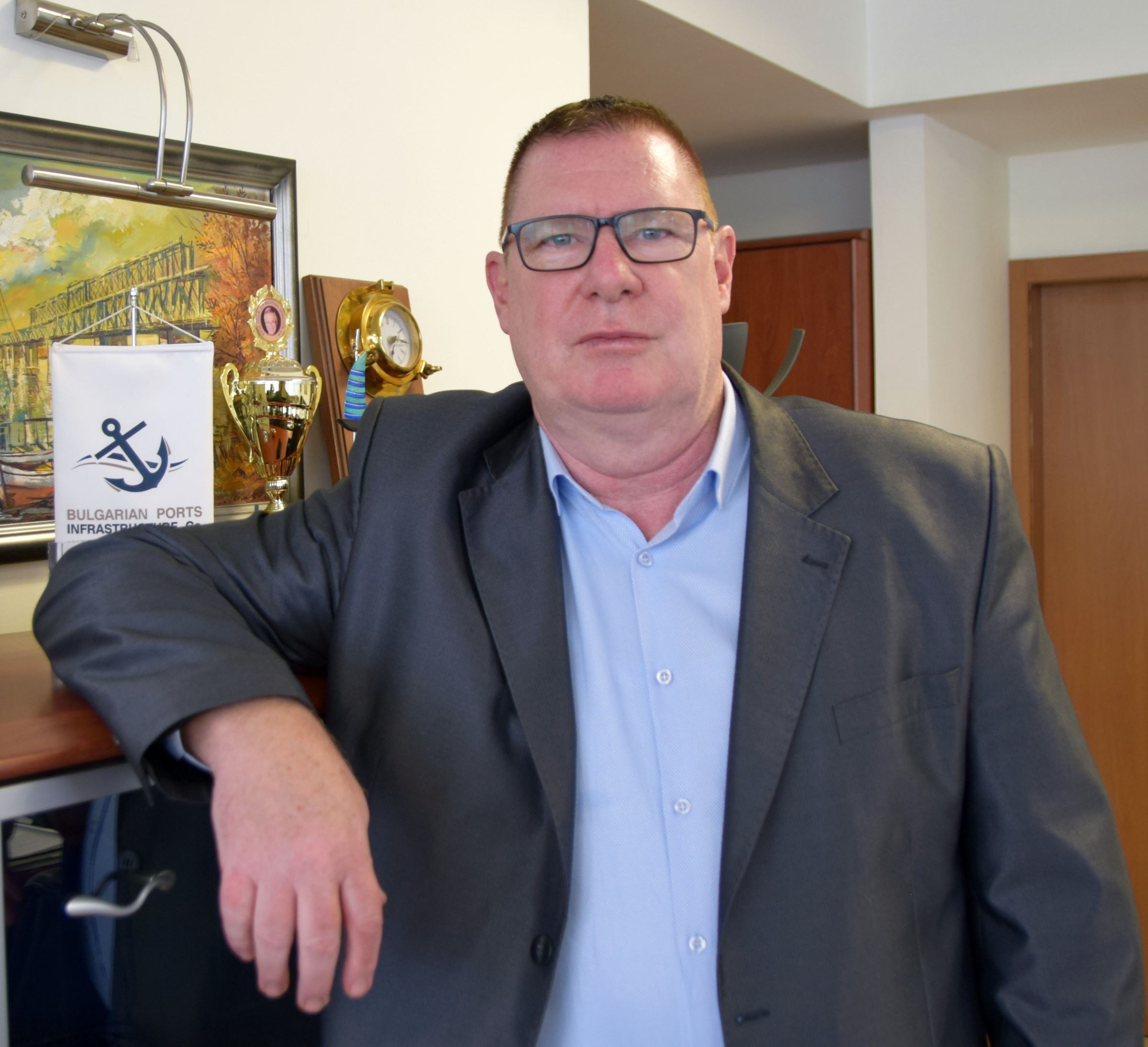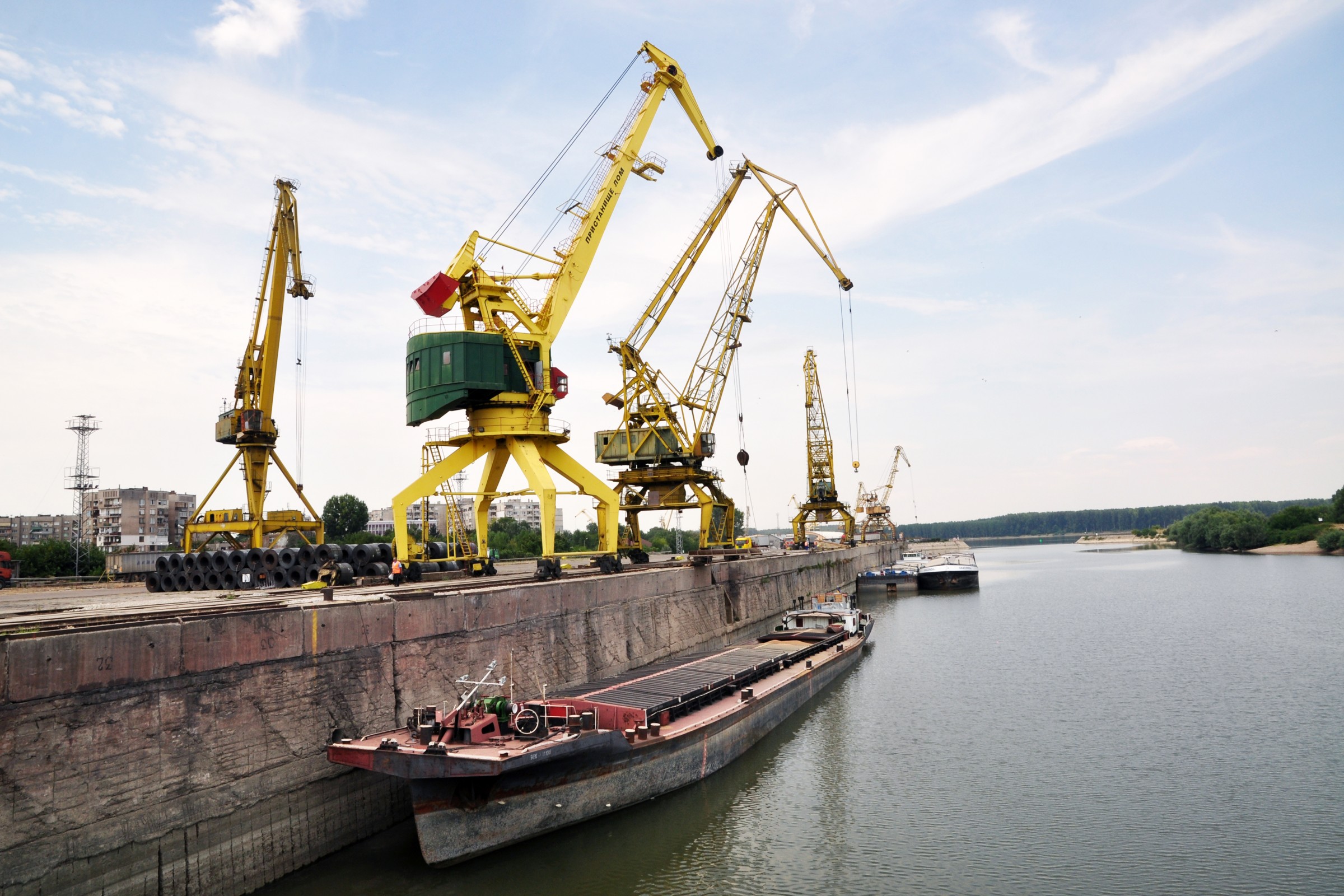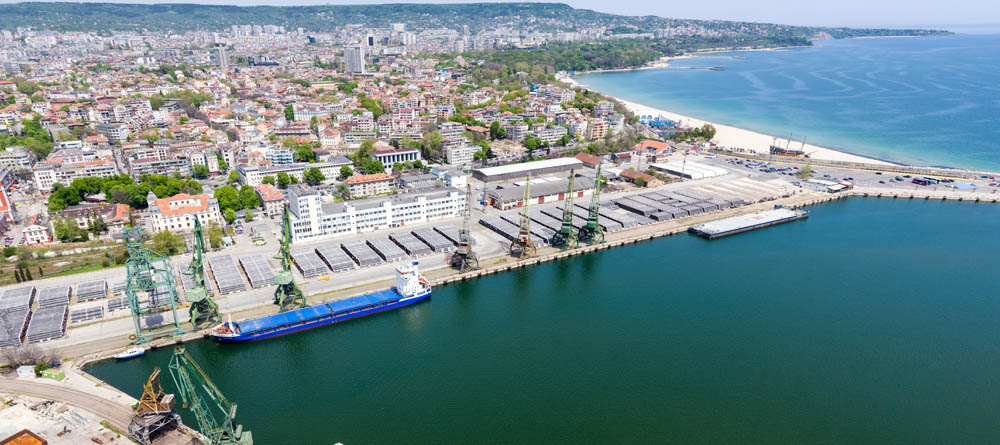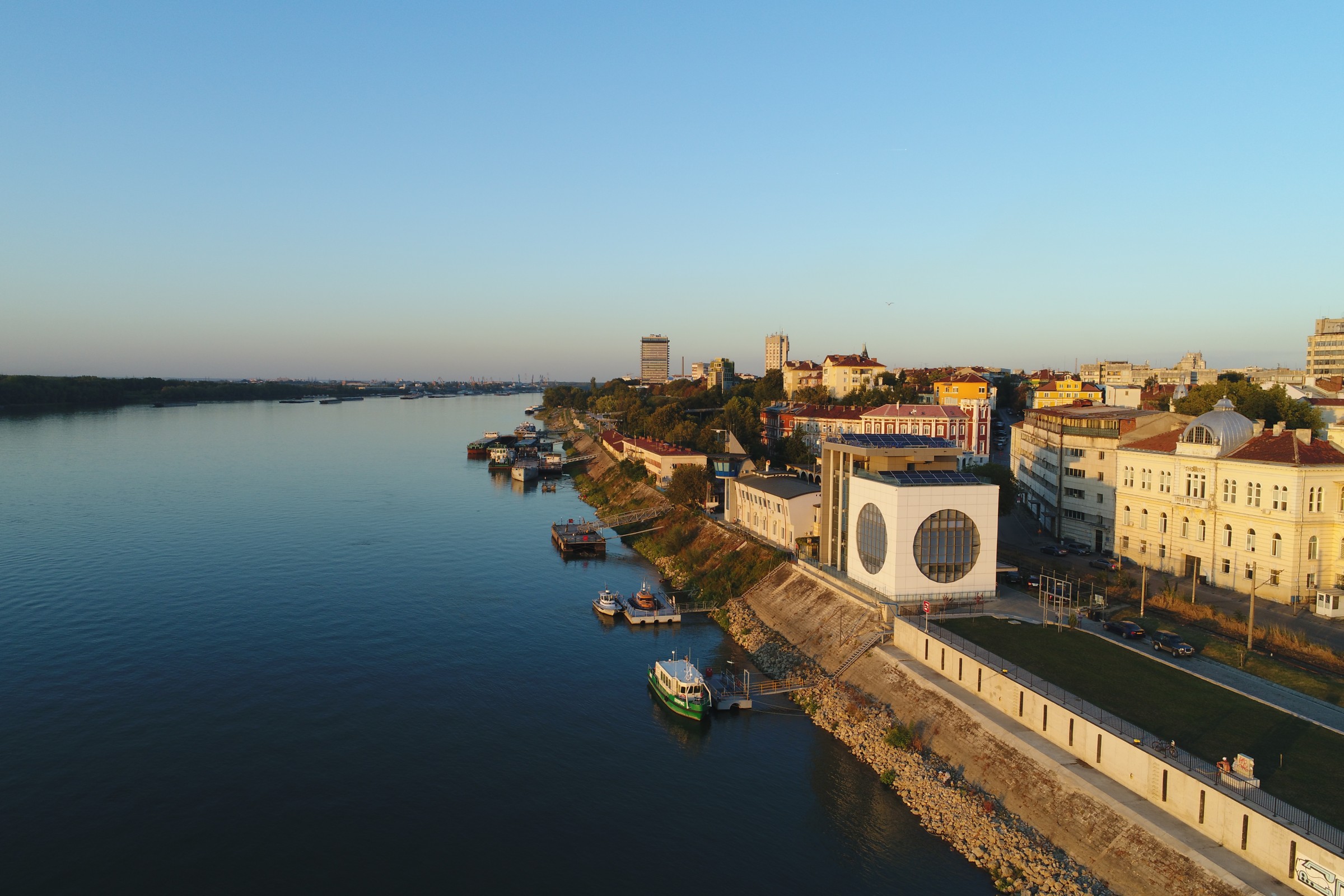26 March 2024
Our port pro of the month is Mr Dirk Pergoot, Director General from the Bulgarian Ports Infrastructure Company (BPI Co.) since 2023. In what follows, you will read more about the impacts of the war in Ukraine on the port business and developments, long-term projects and environmental priorities in BPI Co., as well as the importance of the energy in the port sector. Discover below some other interesting topics addressed by our port professional of the month!
 Mr Dirk Pergoot Director General from the Bulgarian Ports Infrastructure Company (BPI Co.)
Mr Dirk Pergoot Director General from the Bulgarian Ports Infrastructure Company (BPI Co.)
Can you briefly tell us about BPI Co. and the ports you are managing? What are its main characteristics and challenges?
The Bulgarian Port Infrastructure Company (BPI Co.) is the managing body of the Bulgarian public ports. It’s status and activity is regulated by the Law on Maritime Spaces, Inland Waterways and Ports of the Republic of Bulgaria.
The BPI Co. has four major branches at the main ports: Varna and Burgas at the Black Sea coast, Ruse and Lom on the river Danube. Two specialised divisions are responsible for the vessel traffic and shipping traffic information, a third division is responsible for operating ports that are temporarily without concessionaire.
What is your long-term vision for BPI Co.? What are the main investment projects for the coming years? Could you briefly describe the importance of these investment projects for the port and the city?
The main target for the BPI Co. is to develop further the Bulgarian ports by improving the infrastructure, implementing the new European regulations and guidelines, the digitalisation of services and improving the accessibility of bigger vessels to the terminals.
Several projects have been completed in the past years; amongst others deepening the Channel 1 and 2 in the Port of Varna to 14,5 m, rehabilitation of the Varna Ferry Complex and successfully introducing the Maritime Single Window and later the Port Community System (PCS).
Main projects that have been started and should see the day light later this year are the dragging at Terminal 2A in the port of Burgas West, bringing the draft to 14.5 m and allowing vessels up to 260 m length and 32 m beam; the introduction of Central & Eastern European Reporting Information System (CEERIS) (see question 4) in our river ports, the reconstruction of the West Quay in the port of Lom and the project development of On-Shore Power supply (OPS) in river and sea terminals. The latter project has already 11 planned locations in the Ports of Burgas and Varna.
The final goal of all projects is to increase the competitiveness of Bulgarian ports and help Bulgarian industry to develop while using the Black Sea and Danube ports.

Russia’s war of aggression against Ukraine has directly affected maritime transport in the Black and Azov seas, including a halt of the activities in Ukrainian ports and the export of agricultural products through the Black Sea. In this respect, what has been the impact of this war for BPI Co.?
The geopolitical processes in the Black Sea basin have a direct impact on the activities of Bulgarian ports because they are the geographical connection between the East and the West. Ukraine and Russia were historically important trade partners. The direct impact is especially noticeable on all Bulgarian river ports and the Black Sea cruise ships, the latter having disappeared completely. The Sea Ports in Bulgaria are struggling with the risks in the Black Sea and the increased costs.
European ports are increasingly investing in digital solutions to improve the efficiency of the logistics chain and port operations. Have BPI Co. taken any initiatives towards digitalisation?
The implementation and integration of port information systems, modernisation and expansion of the functionality of traffic management systems have always been of the highest priority to BPI Co. Since 2009, we have implemented VTMIS (Vessel Traffic Management Information System) and MSW (Maritime Single Window). The River Information System in the Bulgarian stretch of the Danube River (BULRIS) has been implemented in 2015. At the end of 2023, we have implemented the new Bulgarian Port Community System (BulPCS). We are working now on the implementation of a new electronic reporting system in Central and Eastern Europe CEERIS, which will replace Single Window as the only system for electronic reporting of ships arriving and departing in/from the Bulgarian ports on the Danube River.
 Port of Varna
Port of Varna
How did you get into maritime transport? How did your career path lead to this position?
Eastern Europe and predominantly Bulgaria has been the geographical area in which I have developed my career. First as logistics and sales director in production start-ups, later as local executive manager for mainly Belgian terminal operators.
My first maritime project was linked with the – by ADPO from Antwerp proposed – development of a liquid bulk terminal in the Port of Varna West.
In the year 2000, I was appointed managing director in the Varna region with the intention of my employer to be ready for the concession of the Port of Varna. After more than 22 years in consulting on company management and terminal operations, I was given the opportunity to start working for the State Company BPI Co. I hope to bring the BPI Co. to the level that the major projects of the Ministry of Transport & Communications can be brought to a successful end.
Finally, if you had to bring us to your favourite spot in one of the Bulgarian ports, where would you take us?
It is a difficult task to define a favorite spot in one of our ports. The most pleasant part is for sure the public area in the Port of Burgas, with its modern infrastructure, the planetarium and pleasant hotels and restaurants. The most economically integrated place on the other hand – with still a lot of potential for growth – should be the Port of Varna West. It has its main customers right next door, making it a cost efficient and always busy terminal.
But the terminal which represents something special should be the Ferry Boat Complex in the Varna area. It accepts trucks and wagons and has the unique possibility to change rail cars from Russian standard gauge to European one. Unfortunately, the terminal has been very poorly used in the past years due to the circumstances well known. But it gave us the opportunity to make necessary repairs and making it available for new customers and ideas.

Related documents
No attachments.
